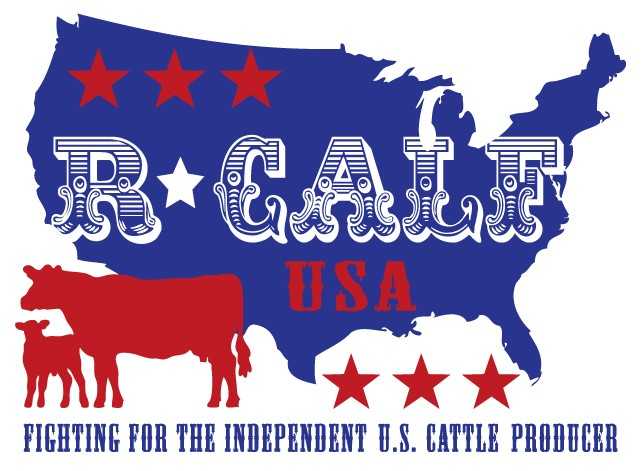![]()

Yesterday, 31 cattle, farm, rural, manufacturing, and consumer groups sent a joint letter to U.S. Trade Representative Katherine Tai requesting her help to restore mandatory country of origin labeling (MCOOL) for beef.
The letter precedes the U.S. Department of Commerce’s Supply Chain Summit on Sept. 10 that will focus on strengthening supply chains so that they are more resilient and secure. The letter references Ambassador Tai’s Financial Times article where she wrote that her office was committed to “breaking out of the technocrats’ bubble to meet working people where they are, redesigning the incentive structure so that communities are not pitted against each other” and that her office would draw “on people’s real experiences to best formulate trade rules that support such collective resilience, including on supply chains.”
“This is precisely the help that ranchers and consumers need and consistent with your comments,” the letter continues. “We respectfully request that you issue a statement to lawmakers regarding your office’s position as to whether the United States has the authority to reinstate mandatory country of origin labeling for beef in the face of the substantive trade reforms you are seeking, including at the World Trade Organization.”
The letter says, “Congress’ effort to impart supply chain transparency for cattle producers and consumers, which helps facilitate the resiliency you seek, was thwarted in 2015 when the WTO Appellate Body issued an adverse decision regarding the labeling of beef per Section 281 of the Agricultural Marketing Act of 1946 (7 U.S.C. 1638).”
According to the letter, neither U.S. consumers nor U.S. cattle producers have any influence or control over the volume of foreign beef and beef from foreign cattle entering their domestic market because foreign beef and beef from foreign cattle remain indistinguishable from domestic beef in America’s retail grocery store meat cases. The result is that global beef packers have full discretion in choosing from which country(s) to source the beef that will be offered to consumers in U.S. grocery stores.
“We and other groups have been advocating for the restoration of mandatory country of origin labeling for beef,” the letter states. “The American Beef Labeling Act (S. 52) and the Country of Origin Labeling Enforcement Act (H.R. 5081) both require country of origin labels on beef sold in grocery stores. We believe this is the most important step Congress can take in the 2024 Farm Bill to stop the commoditization of beef, and the global race to the bottom in cattle and beef sourcing.”
A fairly recent poll by Morning Consult found that 86 percent of registered voters supported mandatory country of origin labeling for beef and 77 percent believed it was important that the beef they purchased was born, raised and harvested in the United States.
The letter says that the biggest impediment to Congress moving the legislation forward is the “WTO illegal” talking point raised by the meatpacking industry, which is especially unfortunate as the 2015 WTO Appellate Body decision was egregious both on its effects and on WTO legal grounds.
“The WTO’s decision on meat labeling was cited as one of three cases leading the United States to end the WTO Appellate Body,” the letter further states.
“Simply put, American consumers and cattlemen were one of a few unlucky victims of a WTO Appellate Body that was so overzealous a decade ago that it led to three U.S. Presidents agreeing on the need to close their office entirely,” the letter says. It goes on to state, “Since the shuttering of the Appellate Body, global trade relations have changed dramatically.”
“Only your office conveys the authority necessary to reassure lawmakers on these points” the letter concludes, “For this reason, your help is desperately needed.”
Groups that joined the letter include: R-CALF USA, Buckeye Quality Beef Association, Campaign for Family Farms and the Environment, Coalition for a Prosperous America, Colorado Independent CattleGrowers Association, Colorado Land, Water & Food Alliance, Colorado Women Involved in Farm Economics, Consumer Federation of America, Dakota Rural Action, Egypt Valley Wasteland Organization, Farm Action Fund, Farm and Ranch Freedom Alliance, Food & Water Watch, Independent Beef Association of North Dakota, Independent Cattlemen of Missouri, Independent Cattlemen of Wyoming, International Texas Longhorn Association, Iowa Citizens for Community Improvement, Iowa Stock Growers Association, Missouri Rural Crisis Center, National Association of Farm Animal Welfare, National Family Farm Coalition, National Women Involved in Farm Economics, Northern Plains Resource Council, Northern Wisconsin Beef Producers, Northern Wisconsin Beef Producers, Oklahoma Independent Stockgrowers Association, Powder River Basin Resource Council, South Dakota Stockgrowers Association, Southern Colorado Livestock Association, and Western Organization of Resource Councils.
